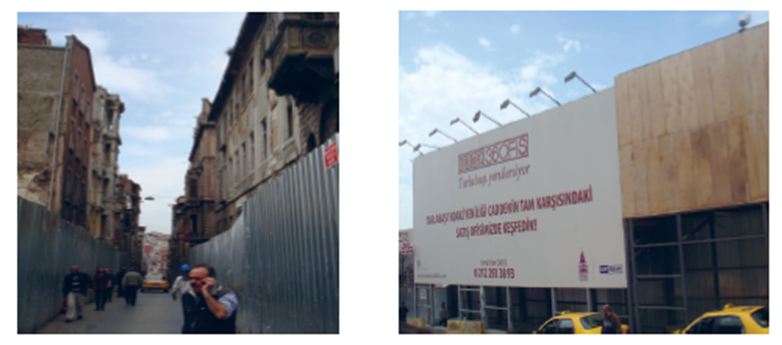Forms of Landmanagement in Urban Renewal Between Expropriation and Land Readjustment: Some Reflections Based on Istanbul
Carlos HOYOS Juan Felipe PINILLA
Urban renewal is nowadays a considerably widespread phenomenon in several cities around the world. This modernizing phenomenon is clearly embodied by policies on densification, revitalization and transformation of urban areas. However, the land management tools employed to advance renewal projects do not always lead to optimal outcomes. This article offers a descriptive analysis of different urban renewal processes in Istanbul. Specifically, it examines how the use of expropriation as a tool for renewal produces undesirable results insofar as the owners of the land that is to be intervened are excluded from the process. This in turn brings about dynamics of gentrification and often leads to the cultural, social and economic uprooting of the community that used to live in the area. In the face of such a scenario, land readjustment appears to emerge as a promising alternative for the state and private owners to work together under an associative logic to renew urban spaces and ultimately obtain much more desirable results as compared to the use of expropriation.
Expropriation, Land readjustment, Urban renewal, Turkey, Istanbul, Sulukule.

Istanbul. Juan Felipe Pinilla 2013
Expropriation, which is the legitimate takeover of private property in exchange for compensation for reasons of public or social interest, is one of the modern state’s traditional prerogatives. In practice, its application entails a number of complex dilemmas that challenge its philosophical foundations and question its objectives and the results of its application in different contexts and for different types of projects.

